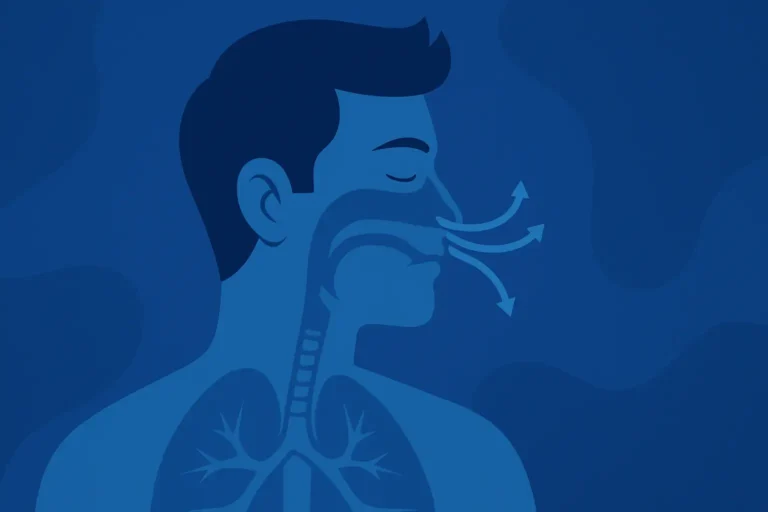What Deficiency Causes Dry Mouth?
Dry mouth is more common than you think. It is when your mouth feels sticky, dry, and sometimes even sore. Many people think it only happens when you are nervous or thirsty. But if your mouth feels dry often, there could be a deeper reason. One big cause is a deficiency — when your body is missing something important that it needs to work properly. In this post, I will explain everything in simple words so you really understand it.
The main deficiency that causes dry mouth is a lack of vitamins and minerals, especially Vitamin B12, iron, and sometimes water itself.
Let’s go deeper into how each deficiency can make your mouth dry and what signs you should look out for.
Can a Vitamin Deficiency Cause Dry Mouth?
Yes, it can. Your body needs vitamins to keep everything running smoothly, including making enough saliva. Saliva is very important because it keeps your mouth moist and helps you chew and swallow food easily.
If your body is low in some vitamins, your mouth can become dry. You might also feel burning, tingling, or soreness in your tongue and gums.
The most common vitamin deficiencies linked to dry mouth are:
| Vitamin | How It Affects Your Mouth |
|---|---|
| Vitamin B12 | Causes nerve problems that reduce saliva production. |
| Vitamin A | Helps keep your mouth’s tissues moist; low levels can cause dryness. |
| Vitamin C | Weakens the gums and mouth lining, making dryness worse. |
If you are low in these vitamins, you might notice other signs too, like tiredness, sores in your mouth, or a swollen tongue.
Is Iron Deficiency Linked to Dry Mouth?
Iron is a mineral your body needs to make healthy red blood cells. Without enough iron, you can develop anemia, which means your blood cannot carry enough oxygen around your body. This can leave you feeling tired, pale, and yes, it can cause dry mouth too.
When you have low iron, the tissues inside your mouth don’t heal as fast. You might feel your tongue burning, have cracks at the corners of your mouth, or notice that your mouth is much drier than usual.
Here’s a simple table showing symptoms linked to iron deficiency:
| Symptom | Reason |
|---|---|
| Dry mouth | Lack of oxygen to mouth tissues. |
| Sore tongue | Poor healing and dryness. |
| Cracks in corners of mouth | Skin gets weaker and breaks easily. |
If you think you might have low iron, you should talk to your doctor. It is easy to check with a simple blood test.
Can Dehydration Be a Deficiency?
Most people do not think of dehydration as a deficiency, but it is. It means your body does not have enough water. Water is very important to produce saliva. If you are not drinking enough water or losing too much water (through sweating, fever, or diarrhea), your mouth can dry out quickly.
Signs of dehydration include:
- Dry mouth
- Dark yellow urine
- Feeling very thirsty
- Feeling dizzy or tired
Drinking more water can often solve mild cases of dry mouth caused by dehydration. But if you are very dehydrated, you might need medical help.
Can Dry Mouth Mean Something Serious?
Sometimes dry mouth is just because of dehydration or a vitamin problem. But other times, it can be a sign of something bigger, like:
- Diabetes
- Thyroid problems
- Autoimmune diseases like Sjogren’s syndrome
In these cases, dry mouth won’t go away even if you drink water or take vitamins. You might also notice weight loss, feeling very tired, or other strange symptoms.
It’s important to listen to your body. If your mouth stays dry even after trying simple fixes, you should see a doctor.
What Are the Signs That a Deficiency Is Causing Dry Mouth?
You can often guess if a deficiency is behind your dry mouth by looking at other signs happening in your body. Here’s a small table to help you:
| Other Signs | Possible Deficiency |
|---|---|
| Tingling hands and feet, tiredness | Vitamin B12 |
| Pale skin, weakness | Iron |
| Cracked lips, sore mouth | Vitamin B deficiencies, Iron |
| Slow healing cuts, bleeding gums | Vitamin C |
| Dry eyes along with dry mouth | Possible autoimmune issue |
If you notice a mix of these signs, it is a strong hint that you might be low on important nutrients.
How to Check If You Have a Deficiency?
You cannot always guess the right deficiency just by symptoms. The best way is to get a simple blood test. A doctor can check:
- Vitamin B12 levels
- Iron levels
- Vitamin A and C levels
- Hydration status
Sometimes, fixing the deficiency is as easy as taking supplements or changing your diet. Other times, you might need a bit more medical help, like iron infusions or special shots for Vitamin B12.
What Foods Help with Dry Mouth Caused by Deficiency?
Eating the right foods can help you fix deficiencies and ease dry mouth. Here are some good options:
| Deficiency | Foods to Eat |
|---|---|
| Vitamin B12 | Eggs, milk, fish, chicken |
| Iron | Red meat, spinach, lentils |
| Vitamin C | Oranges, strawberries, bell peppers |
| Vitamin A | Carrots, sweet potatoes, leafy greens |
Also, drinking plenty of water and sucking on sugar-free candies can boost saliva production.
Tips to Deal With Dry Mouth
Besides fixing deficiencies, you can try some simple tricks to feel better:
- Sip water throughout the day
- Chew sugar-free gum
- Avoid salty and spicy foods
- Use a humidifier at night
- Avoid caffeine and alcohol (they dry out your mouth more)
- Try mouth sprays or gels made for dry mouth
These small habits can make a big difference in how your mouth feels.
When Should You See a Doctor?
If you have tried drinking more water, eating better, and using mouth sprays but your mouth still feels dry after a few weeks, you should see a doctor. Also, if you notice other worrying signs like big weight loss, strange tiredness, or skin changes, don’t wait.
Sometimes dry mouth is the first sign of a bigger health problem that needs quick treatment. It is always better to catch it early.
Conclusion
Dry mouth might seem like a small thing at first, but it can point to bigger problems inside your body. The most common deficiencies linked to dry mouth are Vitamin B12, iron, Vitamin A, and dehydration. Sometimes, it is easy to fix by drinking more water and eating better. But other times, it needs a doctor’s help.
You should listen to your body. If your dry mouth comes with other signs like tiredness, pale skin, or tingling feelings, it might be a deficiency. It’s better to get tested and find out early. Good health starts by paying attention to small changes like these.
If you still have questions about dry mouth or want me to cover anything else, feel free to ask in the comments!






